Disclosure: Meeple Mountain received a free copy of this product in exchange for an honest, unbiased review. This review is not intended to be an endorsement.
It’s fair to acknowledge that I may not be the target audience for games about a 1980s toy line for young girls. That said, doesn’t everyone of a certain age know the jingle for the My Little Pony TV show?
“My Little Pony…My Little Pony…blah blah blah blah, blah blah blah blah blah BLAH blah”
My kids like—but do not love—the “new” version of My Little Pony, but we all love the art style of the new cartoons and the ponies look pretty slick. (This most recent version aired from 2010-2019, the version known as My Little Pony: Friendship is Magic, per Wikipedia.)
Growing up, My Little Pony was strictly girls-stroking-toy-horse-manes-on-weekends territory, but My Little Pony: Friendship is Magic definitely had more mass appeal. I watched a few episodes with the kids during COVID, and I thought it was well done—nothing I would call spectacular, but I like that the property no longer leans into gender stereotypes as hard as it did in 1981 when the brand flipped from My Pretty Pony to the first round of toys and TV shows that turned into My Little Pony in 1982.
Renegade and Hasbro are giving the people more of what they want (hopefully, right?) in the form of the new game My Little Pony: Adventures in Equestria Deck-Building Game. Just like the reincarnation of the phrase “Yo, JOE!!!” with GI JOE Deck-Building Game, the My Little Pony core set includes everything you need to relive the magic of the 2010s TV show with a stellar production, solo and multiplayer options, and “Hurdles” that need to be overcome in order to emerge victorious.
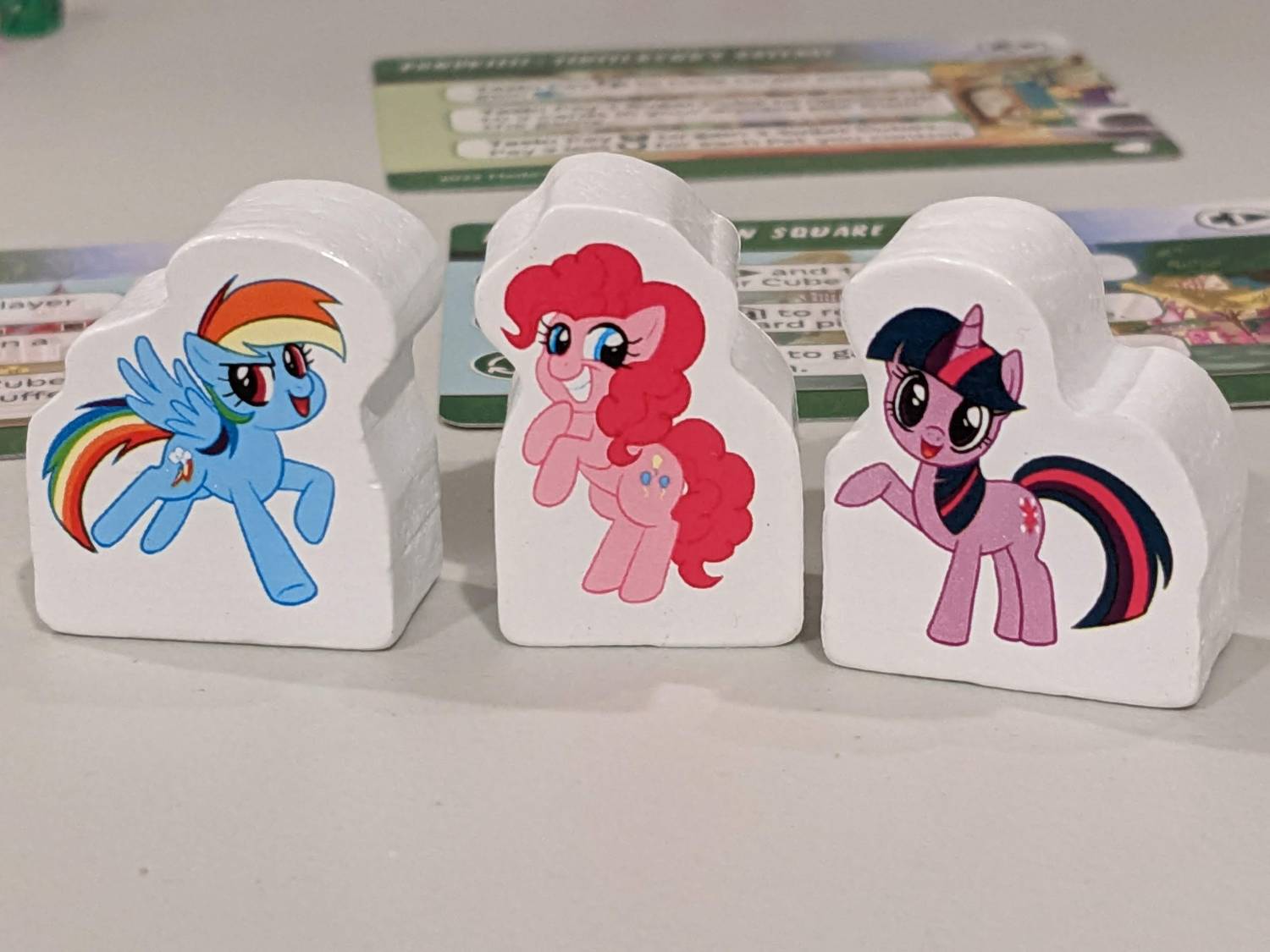
The Road Was Traveled Alone
I don’t blame my friends for this, but not a soul wanted to join me at the table for my plays of My Little Pony; while many seemed intrigued about my opinions, no one wanted to, er, pony up to play with me.
All good. Just like my thoughts on GI JOE Deck-Building Game, My Little Pony is totally fine as a solo operation because the only rules change is that a single player needs to serve as two players for all Hurdle and Situation conditions. Otherwise, gameplay is exactly the same.
Many of the rules for My Little Pony are the same as the GI JOE version of Renegade’s deck-builder. All players start with a deck of 10 cards, one of those cards represents the six available lead character ponies (Rainbow Sparkle, Rarity, Pinkie Pie, etc.). There’s a market row of six cards for purchase during a turn, with a variety of card types available, challenges that need to be overcome, locations that need to be visited and, of course, certain cards appear to muck up each turn’s plans, on and on.
Plus, you’ve got all the standard things with deck builder experiences: your starting hand is crap, you need to find ways to get those cards out of your hand, each turn you will play cards that grant resources that must be spent that turn on new cards, etc.
Having played GI JOE, learning the ropes in My Little Pony was mostly straightforward.
The new elements in My Little Pony don’t help its case, though. For reasons that are still not clear to me, the cards in the market row can be bought for not just one, but three different currencies: Help, Info, and Move. Some cards, then, COST Move points. You would sometimes rather move to another location than use your Move points to buy cards, but here we are.
Also, the Story Missions from GI JOE are called Hurdles here, and some of them are quite easy, with others being a little harder. No matter what, My Little Pony is a little friendlier as players try to complete each Hurdle; there’s a countdown that will deal a one-time setback, but you and your group will always have to provide the resources required to beat each challenge.
Cloudy days represent the game’s timer; everything gets harder the longer you take to beat Hurdles, so just like GI JOE, your best bet is to tackle Hurdles as quickly as possible.
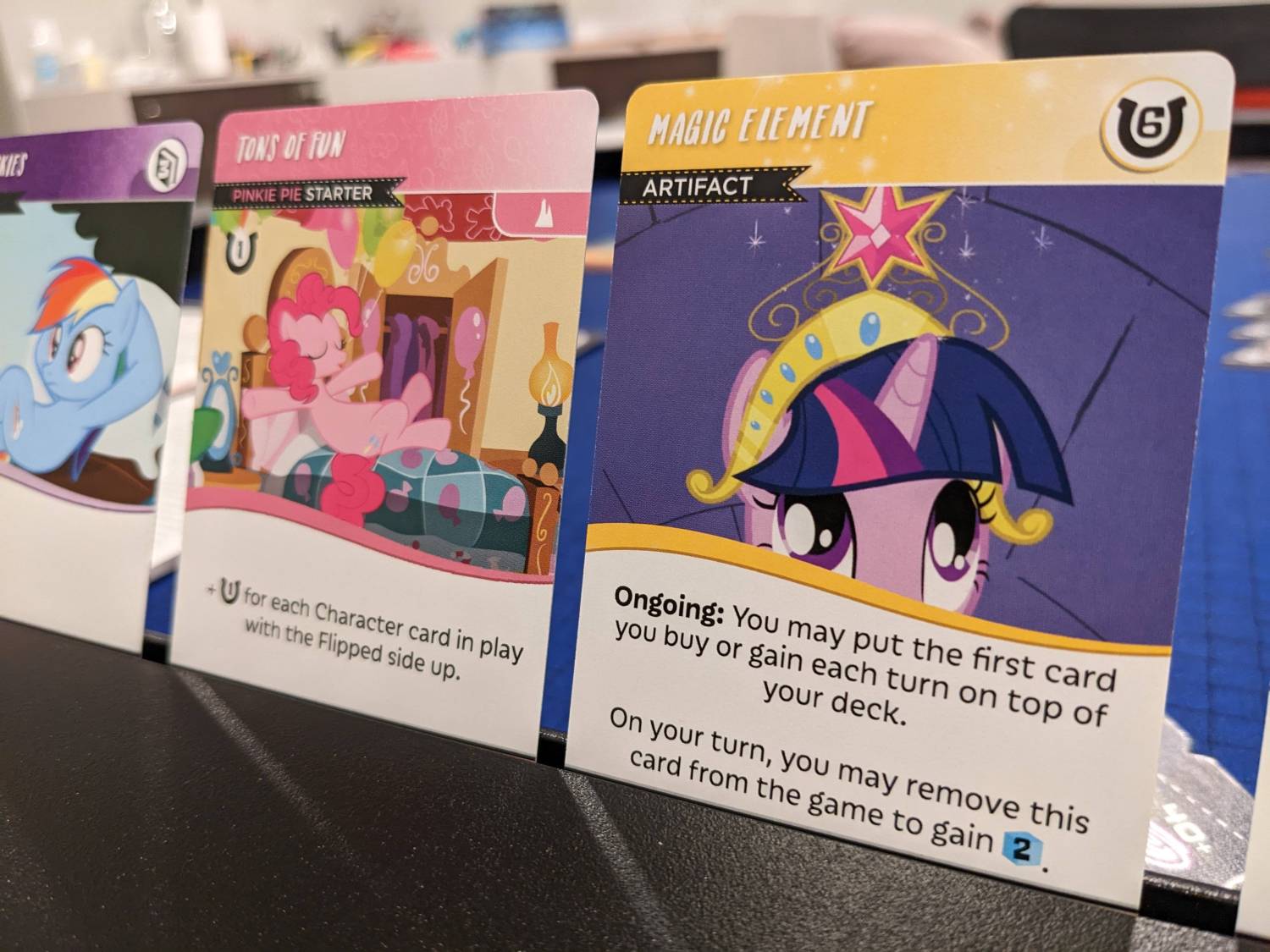
The Theme is Not For Me. How’s the Game?
I am the first to admit that I think GI JOE is a good game, not a great one. But it became a great one because I love the theme and I grew up with a mix of GI JOE and Transformers toys in my childhood kung-fu grip for years.
My experience with My Little Pony: I was surprised how much of a spreadsheet exercise the experience became.
Certain hurdles became a straightforward hunt. I need four Sugar Cubes (the game’s main resource, Sugar Cubes come in three flavors: Work, Knowledge, and Friendship, but all I remember was pink, blue and green) so that I can move to the next challenge.
Other times, I needed a larger number of Sugar Cubes, but I could use Move points to go to a location (a different card in the center of the play area) to grab those cubes. Sometimes, cards will give you a small drip of cubes. Sometimes you can trade cubes for other cubes.
I’m playing a game about My Little Pony, but ultimately, all I cared about was the process of grabbing cubes. Now, if you love the IP, you will happily take Fluttershy to Sweet Apple Acres, pay 6-8 Help to buy three Sugar Cubes, and help your team complete a Hurdle.
Also, My Little Pony is MUCH easier to beat than the missions in GI JOE. In GI JOE, I lost as much as I won. In My Little Pony, I never lost during my four plays, and I was never in any real danger of losing.
Now, I was often in danger of triggering the setback on each of the Hurdle cards, especially the first hurdle of each game when I was starting each game with zilch.
But the game isn’t as challenging, the economy is a little murky, and the theme never hooked me despite my best efforts to get back into character as a child of the 80s. Much like Complication cards in GI JOE, My Little Pony features Situation cards, but all they do is slow the game down. For example, you may have to take an extra turn to come up with some resources to clear a Situation card from the market row before bearing down again on the current Hurdle.
I am hoping My Little Pony was not made easier to align with anything more than a family audience trying to tackle the game, but a small part of me kept dashing thoughts of gender stereotyping as I worked through each play. “Hopefully, they didn’t make this easier because the target audience is probably female” I would say to myself. And I’m still thinking about it.
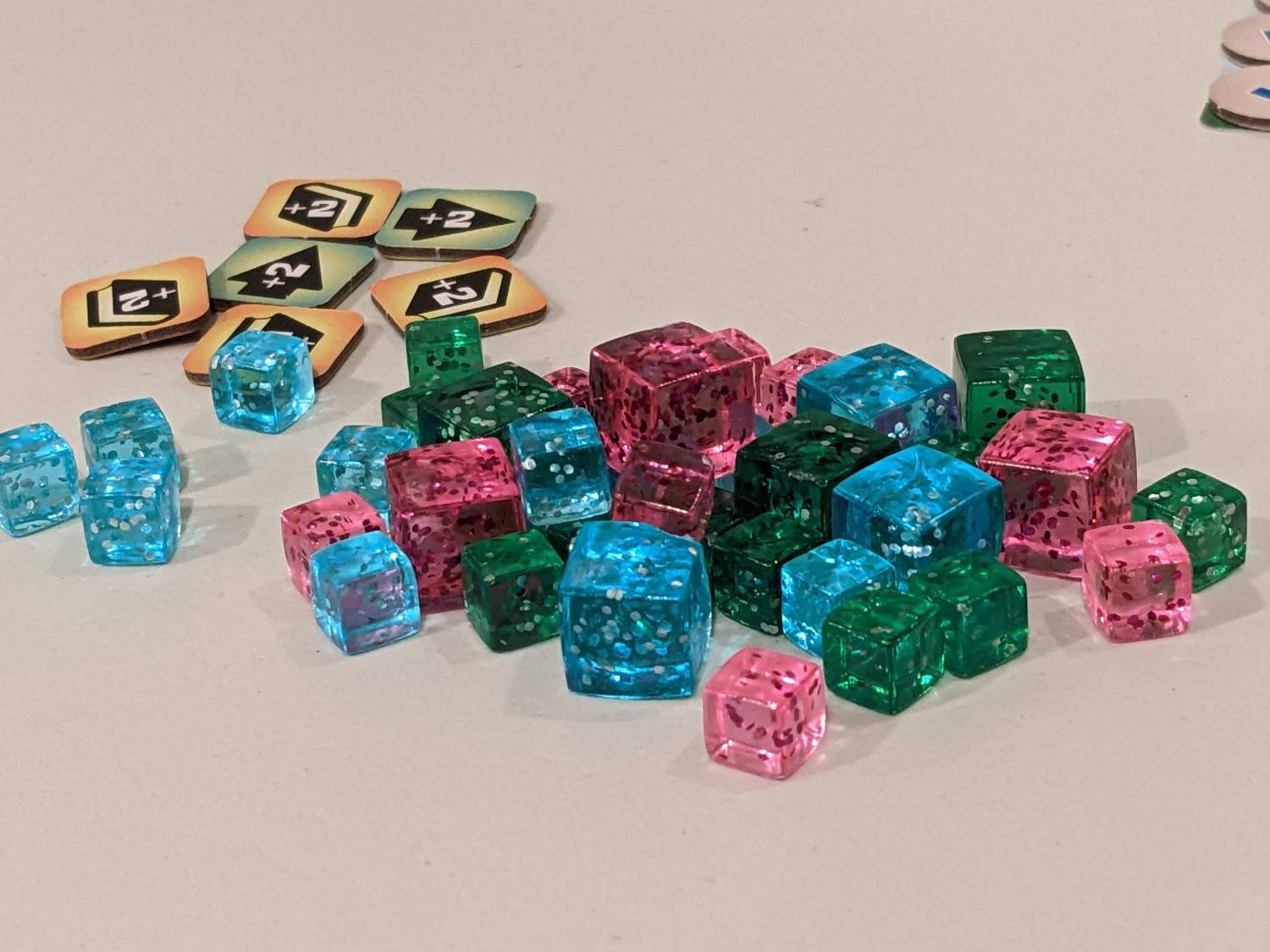
Serious Fans Only
If you LOVE the show My Little Pony, own some of the toys, watched the newest incarnation of the TV show, and/or have kids who might love this game, My Little Pony is a must. Renegade nailed it on the production, the cards, the lore, and (unlike GI JOE) the instruction manual is excellent, even if it’s a bit too long for my tastes.
Renegade was kind enough to send the wooden 3-D screen-printed pony meeples (Meeple Pack #1), and these absolutely smoke the cardboard standees in the base game box. If you love this property, buy the separate meeples for sure.
There are many better deck-builders out there, and other games get the first part of a revolving card market right: there’s just one economy you’ll have to worry about in most other games. I highly recommend GI JOE if you are a fan of the toys and the TV show, but even if you are not, there’s a solid game in there and it’s never hard to figure out how to buy cards.
My Little Pony is harder to recommend to a lay gamer. It’s not a major challenge and it doesn’t create memories or generate any real “aha” moments during play. For me, the rewards just aren’t there.


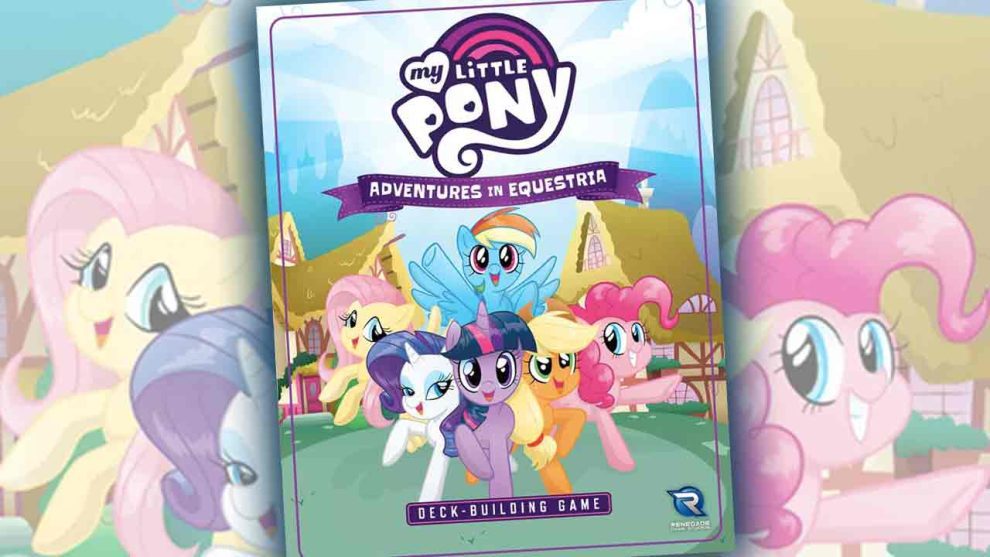

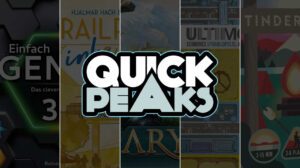
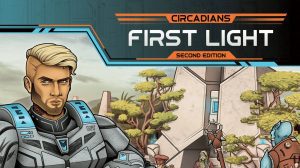






Add Comment